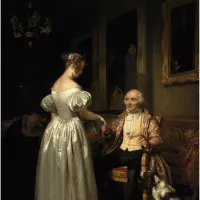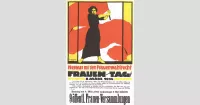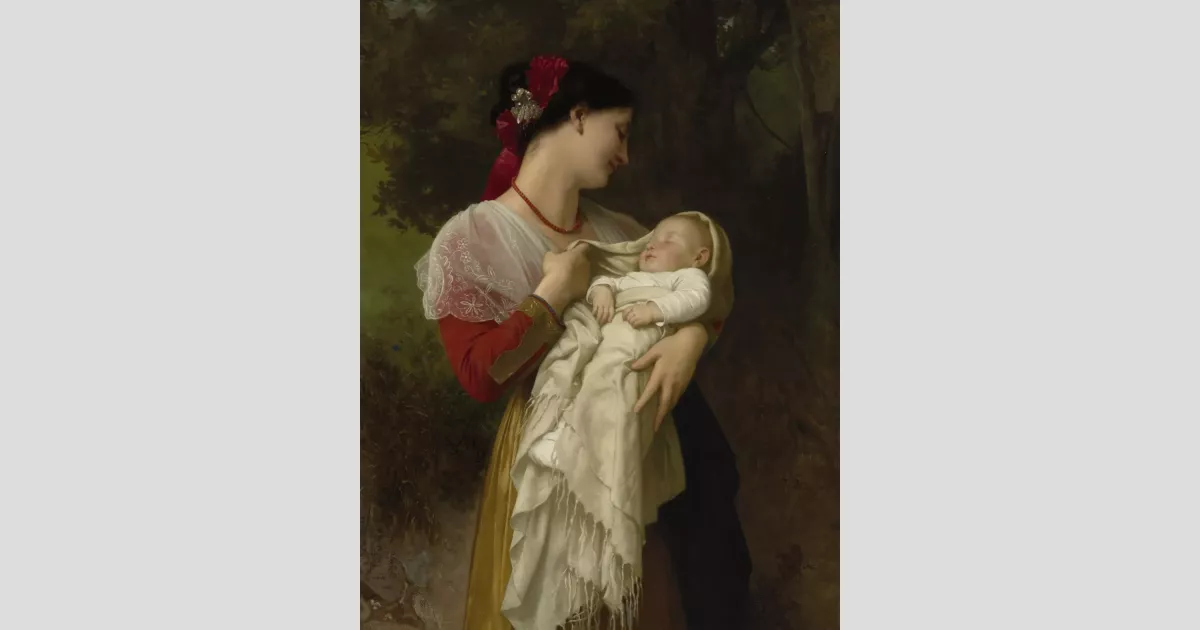Mother's Day is a celebration honoring mothers, motherhood, and the influence of mothers in society. It is celebrated on various days worldwide, most commonly in March or May. The holiday complements other family-centric celebrations like Father's Day, Siblings Day, and Grandparents' Day.
1910: Introduction of Mother's Day in the Netherlands
The Dutch branch of the Salvation Army introduced Mother's Day in the Netherlands. The Royal Dutch Society for Horticulture and Botany promoted the holiday, hoping to emulate the commercial success of American florists.
1912: Rise of Indonesian Feminist Organizations
Indonesian feminist organizations began emerging, inspired by the legacy of 19th-century Indonesian heroines. These organizations played a crucial role in advocating for women's rights and later participated in the Indonesian Women Congress.
1913: Beginning of the Dallas Equal Suffrage Association's Activities
This year marks the beginning of the period examined in the journal article regarding the Dallas Equal Suffrage Association's activities and their impact on the Woman Suffrage Movement.
February 1919: First Mother's Day Celebration
Mother's Day was first celebrated, organized by religious institutions. It later transitioned into a family day.
1919: End of the Dallas Equal Suffrage Association's Activities
This year marks the end of the period examined in the journal article regarding the Dallas Equal Suffrage Association's activities and their impact on the Woman Suffrage Movement.
1921: Declaration of Mother's Day in the Philippines
The Ilocos Norte Federation of Women's Clubs requested the first Monday of December as Mother's Day. Governor-General Charles Yeater issued Circular No. 33, declaring the celebration.
1922: First Mother's Day Celebration in Latvia
Latvia celebrated Mother's Day for the first time.
1922: Introduction of Mother's Day to Mexico
The Mexican government under Álvaro Obregón imported the Mother's Day holiday from the US, with a massive promotional campaign by the newspaper Excélsior.
1923: Germany Adopts Muttertag
Germany unanimously adopted Muttertag, influenced by the American Mother's Day, to address societal division and declining birthrates. The Association of German Florists spearheaded the adoption, believing it would unite the country.
1924: Proposal for Mother's Day on May 11th in Panama
The Rotary Club of Panama proposed celebrating Mother's Day on May 11th. Politician Aníbal D. Ríos changed the proposal to December 8th and established it as a national holiday.
1925: Major Mother's Day Promotion in the Netherlands
Florists in the Netherlands launched a major promotional effort for Mother's Day, including publications, radio broadcasts, newspaper ads, and collaborations with priests and teachers.
1925: First Mother's Day Celebration in Hungary
Hungary celebrated Mother's Day for the first time, an initiative led by the Hungarian Red Cross Youth.
1925: Mother's Day Committee Joins Volk Recovery Task Force
The Mother's Day Committee joined forces with the task force dedicated to the recovery of the German volk, shifting the focus from commercial interests to promoting motherhood as a means to increase the population.
1926: Mother's Day Date Change in the Netherlands
Mother's Day in the Netherlands was celebrated on July 7th to avoid conflict with the honoring of the Virgin Mary. Catholic organizations tried to Christianize the holiday, but these attempts were futile by the 1960s.
December 1928: First Indonesian Women Congress
The first Indonesian Women Congress was held in Yogyakarta, uniting 30 feminist organizations from Java and Sumatra. Its goal was to advocate for women's rights in education and marriage, inspired by notable Indonesian heroines like Kartini and Cut Nyak Meutia.
1928: First Mother's Day Celebration in Lithuania
Lithuania celebrated Mother's Day for the first time.
1928: First Indonesian Women Congress
The inaugural Indonesian Women Congress took place, aiming to advance women's rights in education and marriage. This event significantly contributed to the eventual establishment of Indonesian Mother's Day.
1930: Proposal for Mother's Day Date in Panama
The wife of Panama's President Florencio Harmodio Arosemena suggested December 8th, the same day as the Feast of the Immaculate Conception, as Mother's Day.
1931: Establishment of Mother's Day in Japan
Mother's Day was initially commemorated in Japan as the birthday of Empress Kōjun on March 6th.
1931: Official Mother's Day Date in the Netherlands
The second Sunday of May was adopted as the official celebration date for Mother's Day in the Netherlands.
1933: Nazi Party Increases Mother's Day Promotion
With the Nazi party's rise to power, the promotion of Mother's Day intensified across Europe, including in the UK and France. The Nazis emphasized a mother's role in producing healthy children for the German nation, aligning with their goal of creating a pure "Aryan race".
1934: Adoption of Second Sunday of May for Mother's Day
Latvia began celebrating Mother's Day on the second Sunday of May.
1937: Name Change to Parent's Day in the Philippines
President Manuel L. Quezon changed the name from Mother's Day to Parent's Day to address the lack of a Father's Day.
1937: First "Praise Mothers" Meeting
The first meeting of "Praise Mothers" was held on May 8th.
1938: Kartini Day Instituted
Indonesia established Kartini Day on April 21st to commemorate Raden Ajeng Kartini's advocacy for women's emancipation. This decision was made during the Indonesian Women Congress.
1938: Mother's Cross Award Introduced
The Nazi government introduced the Mother's Cross (Mutterkreuz), awarded to mothers based on the number of children they had, with a minimum requirement of four. This initiative aimed to encourage women to have more children.
1941: Shop-Owner Custom for Mother's Day
Shop-owner members of the Party of the Mexican Revolution allowed women from humble classes to pick a free Mother's Day gift from a shop, a custom that worried the Synarchists who saw it as promoting materialism and idleness.
1942: State-Sponsored Mother's Day Celebration
Soledad Orozco García, the wife of President Manuel Ávila Camacho, promoted Mother's Day, leading to a significant state-sponsored celebration.
1942: Clergy's Response to Mother's Day
The clergy saw the government's promotion of Mother's Day as an attempt to secularize the holiday and promote a more active role for women, potentially weakening men's spiritual strength. They promoted the celebration of Santísima Virgen de la Luz as an alternative.
February 1945: Death of Henrietta Szold
Henrietta Szold, who is considered the "mother" of Jewish children rescued from Nazi Germany through her organization Youth Aliyah, passed away.
1945: End of Nazi Regime
The Nazi regime, which heavily promoted Mother's Day for its own ideological purposes, came to an end.
1949: Adoption of Second Sunday of May for Mother's Day
Japanese society officially adopted the second Sunday of May as the date for Mother's Day.
1953: Indonesian Mother's Day Established
President Sukarno declared December 22nd as Indonesian Mother's Day to honor the spirit of Indonesian women and improve the nation's condition. While the initial focus was on national progress, the celebration has evolved into an expression of love and gratitude towards mothers.
May 1957: First Mother's Day Celebration in Assisi
Mother's Day was first celebrated in Assisi at the initiative of Reverend Otello Migliosi.
December 1958: Proposal to Make Mother's Day Official in Italy
A proposal was presented to the Italian Senate to make Mother's Day an official holiday.
1960: Iran Adopts Western Mother's Day
Iran, under the Pahlavi regime, adopted the Western concept of Mother's Day on December 16th, coinciding with the founding anniversary of the Institute for Women Protection. Empress Farah Pahlavi supported this adoption and promoted the construction of maternity clinics to mark the occasion.
May 1961: First Mention of Mother's Day in Malta
Mother's Day was first mentioned in Malta during radio children's programs.
1961: First National Meeting of Mothers in North Korea
The First National Meeting of Mothers was held in North Korea, for which Kim Il Sung published "The Duty of Mothers in the Education of Children."
1965: Suharto's New Order Begins
The beginning of President Suharto's New Order marked a period where government propaganda utilized both Mother's Day and Kartini Day to promote the image of docile and domestic women.
1979: Iran Shifts Mother's Day Date
Following the Iranian Revolution, the celebration of Mother's Day was moved from December 16th to the 20th of Jumada al-thani, the birthday of Fatimah, Prophet Muhammad's daughter according to Shia Islam. This date change reflects the Islamic Republic's influence on cultural practices. The celebration now combines Mother's Day and Women's Day, replacing International Women's Day.
1980: Proclamation of Mother's and Father's Day in the Philippines
President Ferdinand Marcos proclaimed the first Monday of December as both Mother's Day and Father's Day.
1988: Separation of Mother's and Father's Day in the Philippines
President Corazon Aquino changed Mother's Day to the second Sunday of May and Father's Day to the third Sunday of June, discontinuing the shared date.
1992: Resumption of Mother's Day Celebration
The celebration of Mother's Day was resumed after the end of the Soviet occupation.
1995: First Mother's Day Celebration in Mandalay
At the proposal of U Thukha, Mother's Day was first celebrated in Mandalay, Myanmar on the full moon day of Pyatho.
1997: Official Recognition of Mother's Day in Myanmar
Two years after its first celebration, Mother's Day was officially added to the Myanmar calendar.
1998: Return to Shared Date for Mother's and Father's Day in the Philippines
President Joseph Estrada returned both Mother's Day and Father's Day celebrations to the first Monday of December.
1998: End of Suharto's New Order
The end of President Suharto's New Order brought an end to the regime's manipulation of Mother's Day and Kartini Day for their propagandistic purposes.
2002: Journal Article Publication
The journal article "The Dallas equal suffrage association, political style, and popular culture: grassroots strategies of the Woman Suffrage Movement, 1913–1919" by Elizabeth York Enstam is published in the Journal of Southern History.
2008: Request to Move Mother's Day in Paraguay
Due to Mother's Day overshadowing Independence Day celebrations, Paraguayan Minister of Culture Bruno Barrios requested to move Mother's Day to the end of the month. The Comisión de festejos of Asunción asked to move it to the second Sunday of May.
May 2012: Designation of Mother's Day in North Korea
The Presidium of the Supreme People's Assembly designated May 2012 as Mother's Day in North Korea.
2012: First Mother's Day Celebration in Kyrgyzstan
Kyrgyzstan celebrated Mother's Day for the first time.
November 2014: Journal Article Accessed Online
The journal article "The Dallas equal suffrage association, political style, and popular culture: grassroots strategies of the Woman Suffrage Movement, 1913–1919" by Elizabeth York Enstam was accessed online via Student Resources in Context.
2015: Mother's Day Becomes Public Holiday in North Korea
Mother's Day became a public holiday and appeared on the North Korean calendar.
2015: Mata Tirtha Aunsi in Nepal
The festival of Mata Tirtha Aunsi, equivalent to Mother's Day, was celebrated in Nepal on April 18th to honor and commemorate mothers.
Mentioned in this timeline
Myanmar also known as Burma is a Southeast Asian country...

Father's Day is a celebration dedicated to honoring fathers fatherhood...
Germany officially the Federal Republic of Germany is a Western...
Japan is an East Asian island country situated in the...

International Women's Day IWD celebrated annually on March th is...
Korea is a peninsular region in East Asia comprised of...
Trending

11 months ago Alex Sarr Shines as Wizards Beat Pistons: Sarr's 19 Points Not Enough
3 months ago Rutgers Student Critically Injured at Fraternity House: Investigation Underway, Safety Concerns Raised.

2 months ago Ryan Seacrest's Impressive Workout: Biceps Bulge Surprises Fans After Hollywood Exit

10 months ago Lily Collins Shares Adorable Dance Party with Daughter Tove and Celebrates First Birthday as Mom.

10 months ago Caitlin Clark, Serena Williams at NFL Meeting; Flag Football for LA28.
8 months ago Queens 10K Returns: Race, Festival, Kids Run & Community Engagement in 2025
Popular

Thomas Douglas Homan is an American law enforcement officer who...

William Franklin Graham III commonly known as Franklin Graham is...

XXXTentacion born Jahseh Dwayne Ricardo Onfroy was a controversial yet...

Jupiter is the fifth and largest planet from the Sun...

Instagram is a photo and video-sharing social networking service owned...

KFC or Kentucky Fried Chicken is an American fast-food chain...
